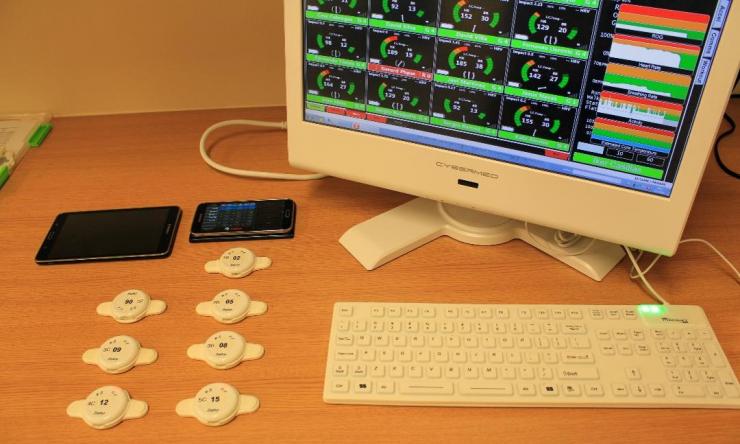New center funds research to advance at-home healthcare technology
Baylor College of Medicine is one of four sites named as a recipient of a $3 million award from the National Science Foundation’s Industry-University Cooperative Research Centers. The Center to Stream HealthCare in Place brings together experts in the industry to research, develop and promote wearable devices that help providers gather patient data without the patient having to leave their home. Other partner institutions for this national center include the University of Arizona, the University of Southern California and the California Institute of Technology.
According to Dr. Bijan Najafi, the Center’s co-director, professor of surgery and director of clinical research in the division of vascular surgery and endovascular therapy in the Michael E. DeBakey Department of Surgery, Baylor’s focus is on the clinical medicine aspect of the Center, accelerating translation of cutting-edge technologies to patients’ care in-place, while training students and fellows in remote patient care. The Center will accelerate innovation through partnerships, multispecialty collaborations, resource sharing, and preparing an educated workforce to promote wellness through self-care technologies.
“Chronic health conditions are financially and emotionally costly,” Najafi said. “Immediate action is needed to shift from current practice, in which frequently the patient is a passive recipient of care, to empower patients to have a central active role in self-managing their health. The Center will accelerate knowledge and intellectual property transfer between academia and industry through collaborative partnerships. This will promote rapid development of new technologies and transform healthcare delivery by enhancing the quality of life of chronically ill patients while reducing healthcare costs and preventing hospitalizations.”
Patient data will be streamed to medical professionals at remote locations, establishing a mobile hub for vulnerable patients in their own home and personalizing care coordination. The Center will focus on mitigating physiological, environmental and psychological changes for timely management and intervention.
The Center blends expertise in surgery, geriatrics, neurology and psychiatry at Baylor and its affiliated hospital, the Menninger Clinic, which has been studying wearable technology for managing suicidality for past three years. The Menninger Clinic’s mission is to pursue innovations in the art and science of mental healthcare to advance treatment for Americans.
“The Menninger Clinic is thrilled to be part of the Center and have mental health represented,” said Dr. Michelle Patriquin, one of the principal investigators of Baylor’s site, director of Menninger Research and assistant professor of in the Menninger Department of Psychiatry and Behavioral Sciences at Baylor. “This center’s productive cross-disciplinary collaborations will reinvent the way we approach mental health. The need in mental health pre-pandemic was significant, and now it is even greater. This Center is at the frontier of integrating mental health science and service through innovation.”
“This is an exciting collaboration of engineers, scientists and clinicians taking an innovative approach to improve the lives of older adults,” said Dr. Aanand Naik, the Robert J. Luchi, M.D. Chair in Geriatric Medicine and professor and section chief of medicine-geriatrics and palliative medicine at Baylor. “Using technology to improve the reach and relevance of clinical medicine, the Center is creating a connected home that can improve our detection of illness, reduce harms and improve disability.”
“This Center offers Baylor researchers and clinicians an opportunity to collaborate with some of the top technology companies in the country,” said Dr. Mark Kunik, professor in the Menninger Department of Psychiatry and Behavioral Sciences at Baylor and director of the VA South Central Mental Illness Research, Education and Clinical Center.
Both Naik and Kunik also serve as co-principal investigators of Baylor’s site.










